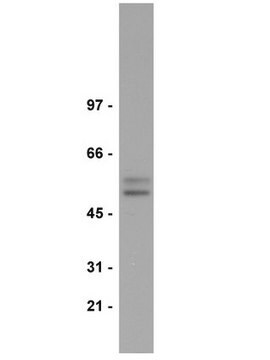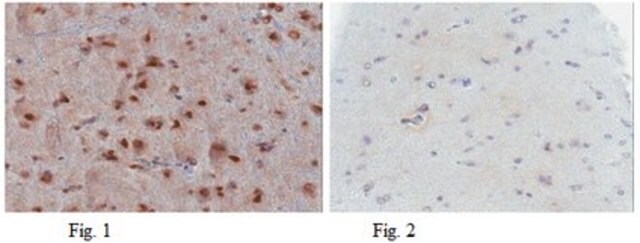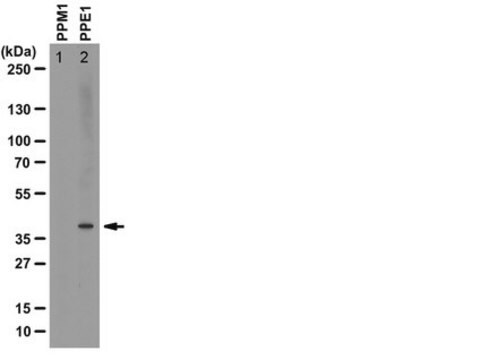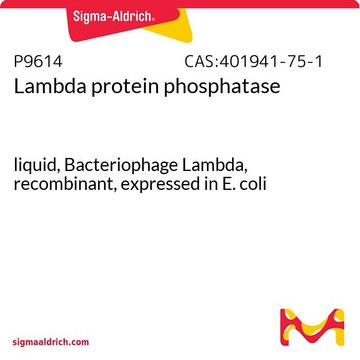MABS270
Anti-PP2A reg. subunit B56 epsilon (PPP2R5E) Antibody, clone 5A5-1F3
clone 5A5-1F3, from mouse
Synonyme(s) :
Serine/threonine-protein phosphatase 2A 56 kDa regulatory subunit epsilon isoform, PP2A B subunit isoform B′-epsilon,
PP2A B subunit isoform B56-epsilon, PP2A B subunit isoform PR61-epsilon, PP2A B subunit isoform R5-epsilon
About This Item
Produits recommandés
Source biologique
mouse
Niveau de qualité
Forme d'anticorps
purified immunoglobulin
Type de produit anticorps
primary antibodies
Clone
5A5-1F3, monoclonal
Espèces réactives
human, mouse
Technique(s)
immunocytochemistry: suitable
immunoprecipitation (IP): suitable
western blot: suitable
Isotype
IgG1κ
Numéro d'accès NCBI
Numéro d'accès UniProt
Conditions d'expédition
wet ice
Modification post-traductionnelle de la cible
unmodified
Informations sur le gène
human ... PTPA(5524)
Description générale
Spécificité
Immunogène
Application
Neuroscience
Apoptosis & Cancer
Kinases & Phosphatases
Apoptosis - Additional
Immunocytochemistry Analysis: A representative lot detected PP2A reg. subunit B56 epsilon (PPP2R5E) in U2OS cells. (Max F. Perutz Laboratories, Medical University of Vienna, Austria).
Immunoprecipitation Analysis: A representative lot immunoprecipitated endogenous PP2A reg. subunit B56 epsilon (PPP2R5E) in a panel of U2OS cell lysates expressing the B56 alpha, beta, gamma, delta, and epsilon regulatory subunit of PP2A (Max F. Perutz Laboratories, Medical University of Vienna, Austria).
Qualité
Western Blot Analysis: A 1:1,000 dilution from a representative lot detected PP2A reg. subunit B56 epsilon (PPP2R5E) in 10 µg of NIH/3T3 cell lysate.
Description de la cible
Forme physique
Stockage et stabilité
Remarque sur l'analyse
NIH/3T3 cell lysate
Clause de non-responsabilité
Vous ne trouvez pas le bon produit ?
Essayez notre Outil de sélection de produits.
Code de la classe de stockage
12 - Non Combustible Liquids
Classe de danger pour l'eau (WGK)
WGK 1
Point d'éclair (°F)
Not applicable
Point d'éclair (°C)
Not applicable
Certificats d'analyse (COA)
Recherchez un Certificats d'analyse (COA) en saisissant le numéro de lot du produit. Les numéros de lot figurent sur l'étiquette du produit après les mots "Lot" ou "Batch".
Déjà en possession de ce produit ?
Retrouvez la documentation relative aux produits que vous avez récemment achetés dans la Bibliothèque de documents.
Notre équipe de scientifiques dispose d'une expérience dans tous les secteurs de la recherche, notamment en sciences de la vie, science des matériaux, synthèse chimique, chromatographie, analyse et dans de nombreux autres domaines..
Contacter notre Service technique








